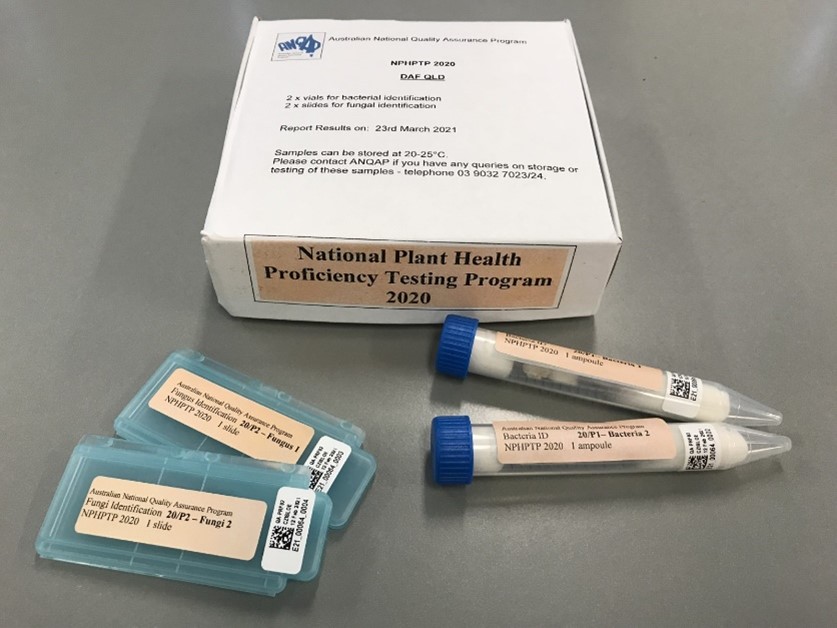The Subcommittee on Plant Health Diagnostics is committed to helping facilitate the progression of laboratory accreditation and proficiency testing.
Benefits
Laboratories taking part in regular proficiency testing provide regulatory bodies with confidence in the results of diagnostic tests, which is vital when dealing with international or interstate trade issues.
Other significant benefits to laboratories include:
- Confirming competent performance
- Evidence of proficiency for accreditation
- Identifying testing or measurement problems
- Comparing methods or procedures
- Comparing operator capabilities
- Educating staff
- Instilling confidence in staff and management
- Strengthening networks between laboratories
- Providing laboratories with additional risk management.
SPHD works collaboratively with participating laboratories to improve diagnostic services and continues to refine the proficiency testing program to ensure maximum benefits to participants.
National Plant Health Proficiency Testing Program details
SPHD has delivered the National Plant Health Proficiency Testing Program (NPHPTP) since 2012. The Proficiency Testing Coordinator, appointed by SPHD, manages the delivery of the program in conjunction with Australian National Quality Assurance Program (ANQAP). ANQAP have a long history of delivering proficiency testing for veterinary laboratories, hence was chosen by SPHD to do the same for plant health.
The NPHPTP determines the testing performance of participating laboratories against pre-established criteria by means of confidential, interlaboratory comparison. Each year, the Proficiency Testing Coordinator selects one or more species from the six specimen groups to be included in the program.
The specimen groups are:
- Insects and mites
- Nematodes
- Fungi
- Bacteria
- Viruses
- Phytoplasma
Specimens are sourced from field surveys, reference collections, international collaborators or other means identified by the Proficiency Testing Coordinator. The specimen identifications are verified and provided to ANQAP for distribution in the program.
To ensure no one laboratory is disadvantaged due to regularly supplying specimens (and therefore being unable to participate), provision of specimens is achieved across all Australian jurisdictions as well as New Zealand.
Each year, Australian and New Zealand laboratories in the National Plant Biosecurity Diagnostic Network can elect to receive specimens from all six specimen groups or just the groups relevant to the expertise in the laboratory. Background information about the samples, such as the host, part of host plant affected, symptoms, extent of damage and collection region is provided with the samples. The laboratories are asked to identify the samples and provide feedback on the process. Results are collated by ANQAP and outcomes from specific laboratories kept confidential. A general report is provided to SPHD to inform their ongoing professional development planning.
Resources
Guides are available to inform laboratories on both collection and supply of specimens and acceptable taxonomy.
Program funding
Funding for the delivery of the program is provided by the Department of Agriculture, Water and the Environment to source specimens to use in the program. Fees apply for participation in the program which is currently only available to Australian and New Zealand participants.
Get your laboratory involved
Email NPBDN@phau.com.au if you would like more information about the program or to become involved.
